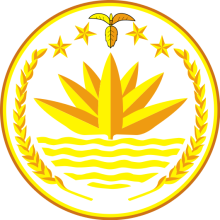Resource information
This Act, consisting of 25 sections, establishes the Chittagong Hill Tracts Development Board. It establishes composition, duties and responsibilities of the above mentioned Board as a statutory body which shall have the power to acquire, possess, and transfer both movable and immovable property. The general management and administration of the Board shall be entrusted to the Board of Directors. The functions of the Board shall be as follows: Considering the population, size and backwardness of the postal district, preparation of schemes for the development of districts; Approval of schemes, union and rural areas of the district; Monitor the implementation of approved projects and schemes; Implementation of development projects and schemes by financial or technical assistance of different development organizations; Perform the above-mentioned activities, and other related tasks. The Board will perform its duties under the overall supervision of Chittagong City Regional Council.
Repeals: Chittagong Development Authority Ordinance, 1959 (E. P. Ordinance No. LI of 1959). (1976)



